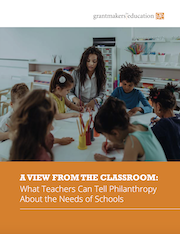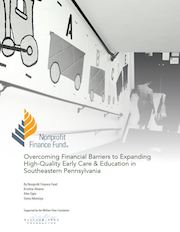Educational
Hear from multiple perspectives of expertise to understand how kids learn to read and how to connect them to what they need.
Please join us to share our work, brainstorm solutions, and discuss areas of common interest.
70 years after Brown vs. The Board of Education, segregation and resource inequities continue in New Jersey schools. Discussion will center on the lawsuit brought by 9 families with a coalition of civil rights, faith, and social justice groups.
Please join us as we kick-off our 2024 meetings with a discussion on the Vote 16 campaign.
A discussion on the trip back from COVID-19, and how we help to re-engage our teachers, students, and families after a two-year disruption.
Learn about community colleges as a pathway to success for students in New Jersey, and philanthropy’s role in supporting more accessible, affordable, and flexible higher education models.

What can over a million teachers tell us about the needs of schools? This report digs into the data from 1.8 million teacher requests on the crowdfunding site DonorsChoose to tell the story from inside today's classrooms. We feel this data provides a roadmap for funders seeking to support students directly, but also for funders seeking broader reform of U.S. education policy and systems.
"Co-Creation" is a case study about the Connecticut Early Childhood Funder Collaborative, a project of the Connecticut Council for Philanthropy. The case study examines co-creation, an emerging systems change collaboration model which grew out of a funder-and-state partnership. This unique partnership led to the creation by executive order of a new and independent Office of Early Childhood, which was formally approved by the Connecticut State Legislature in 2013. The companion piece, "Taking on New Roles to Address 21st Century Problems," looks at co-creation from the perspective of a regional association of grantmakers.
The Silicon Valley Out-of-School-Time Collaborative invested in a cohort of regional nonprofit organizations to sustain and strengthen their ability to serve more students with stronger academic and social-emotional programming. A midcourse evaluation of the collaborative showed that grantees were stronger, programs were better and are reaching more students, and funders had adopted new, collaborative grantmaking practices. A second phase of the work was committed to more flexibility –– letting grantees drive the group’s planning and learning efforts, and manage consultants, budgeting and group communications. Grantees also opted to redirect the focus of the collaborative from capacity building to program development and evaluation, with the added goal of sharing effective afterschool and summer program models with others, both inside and outside the region.

